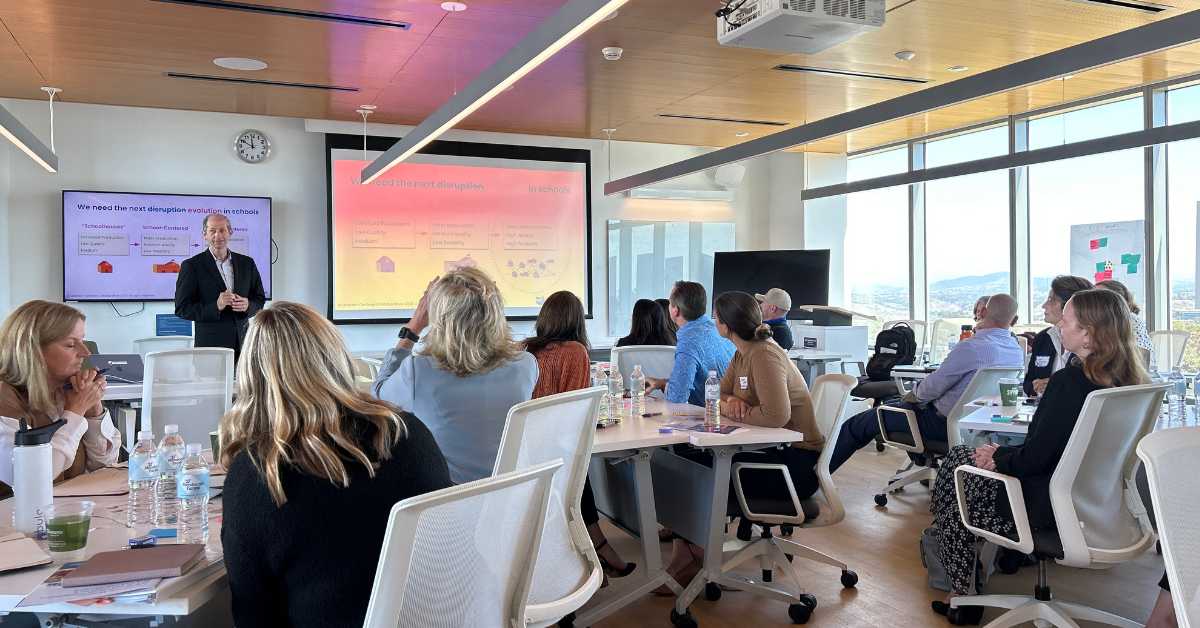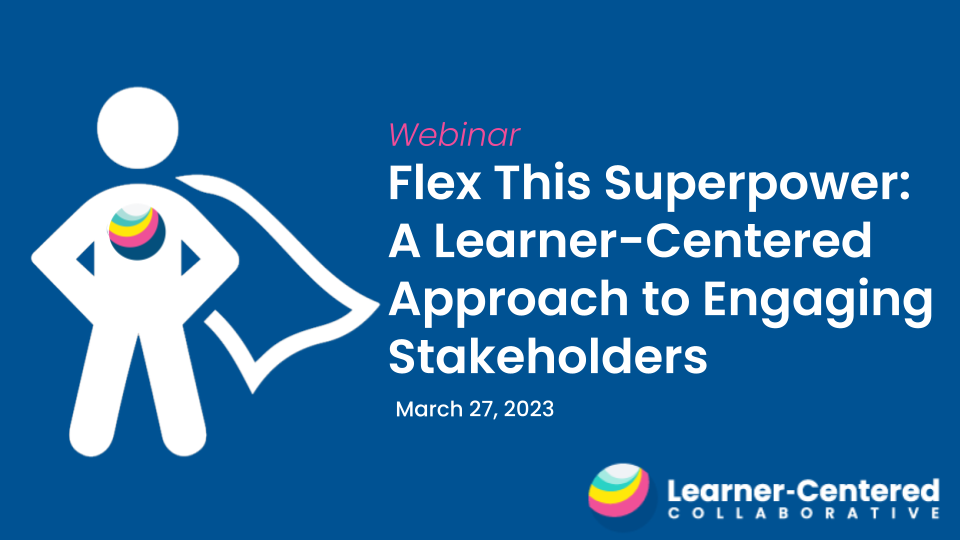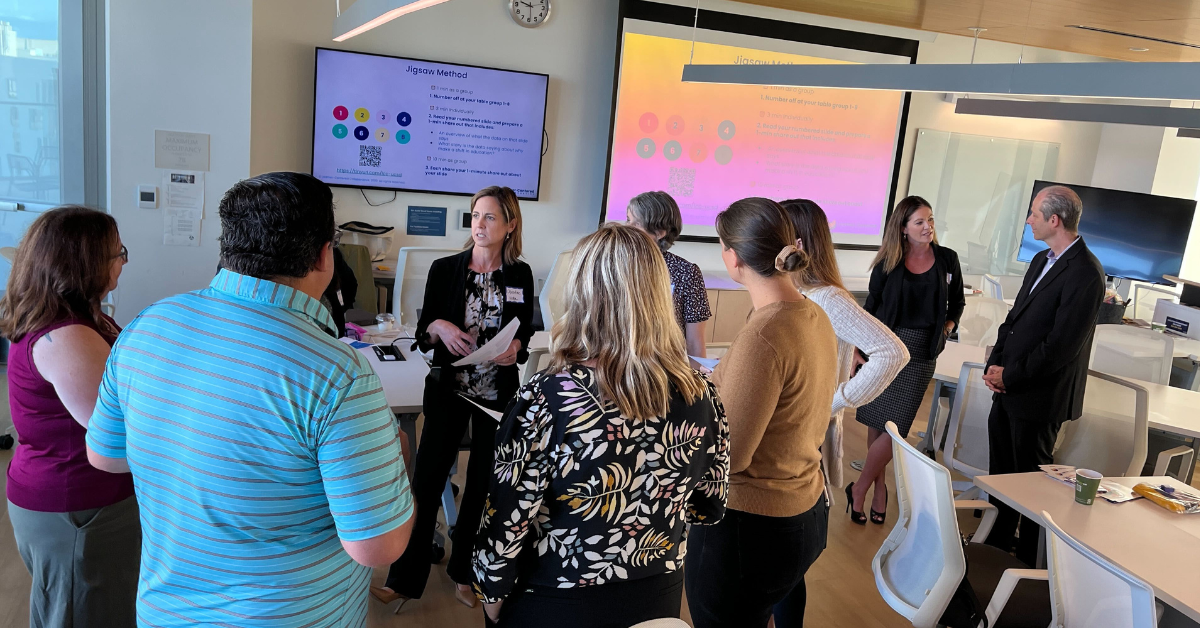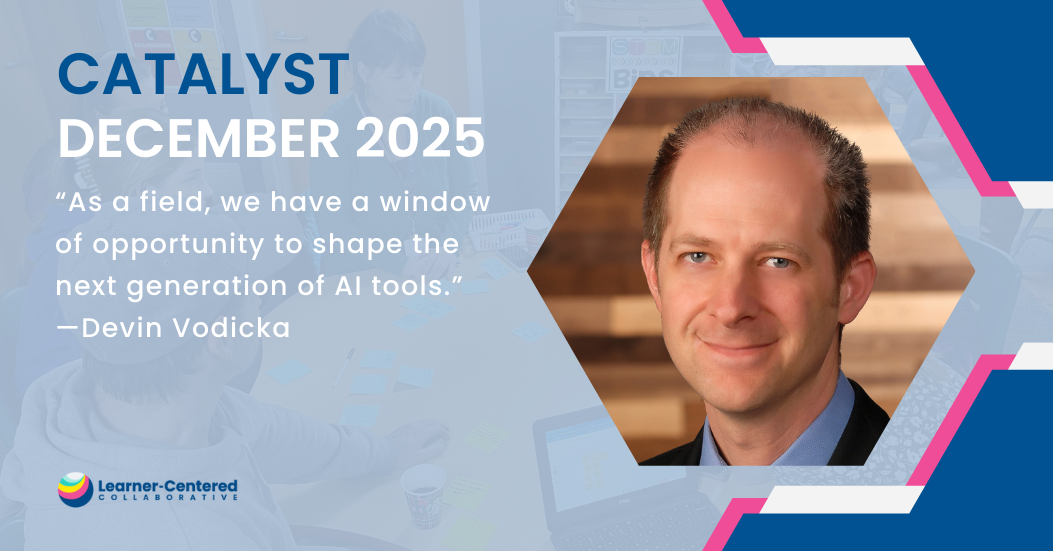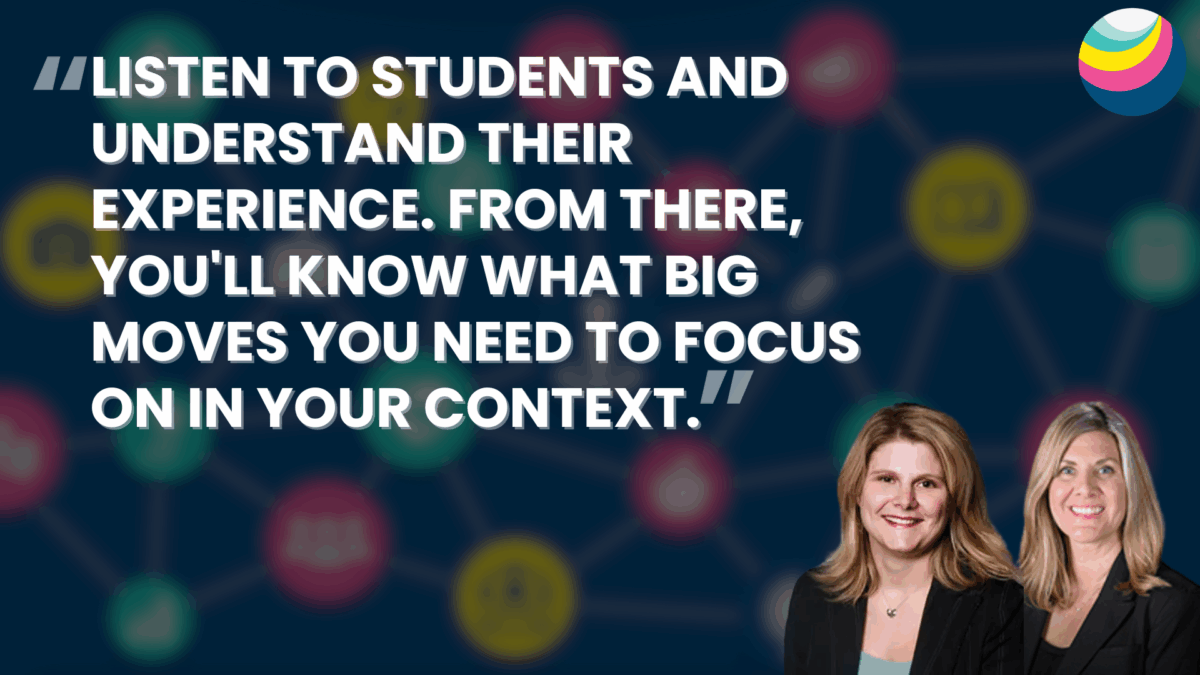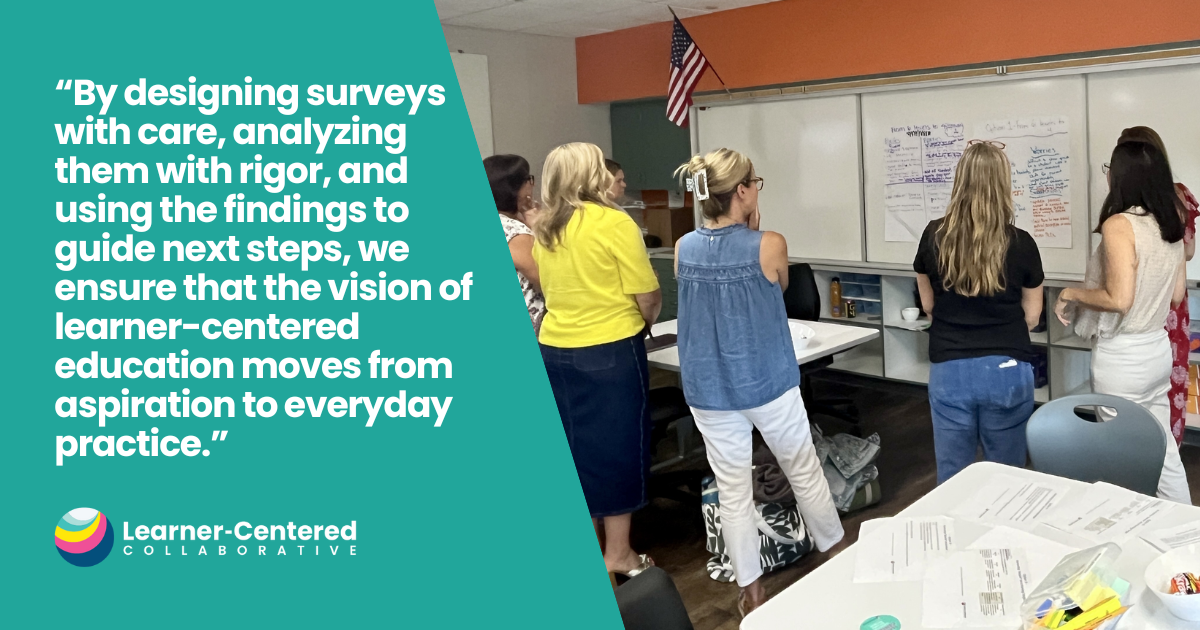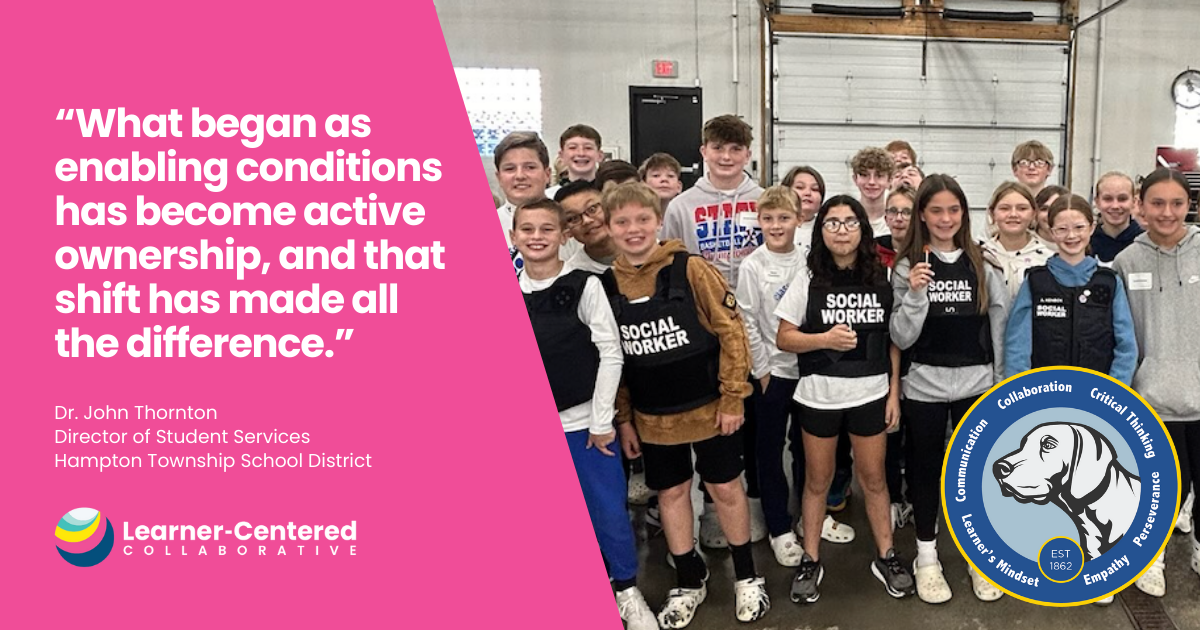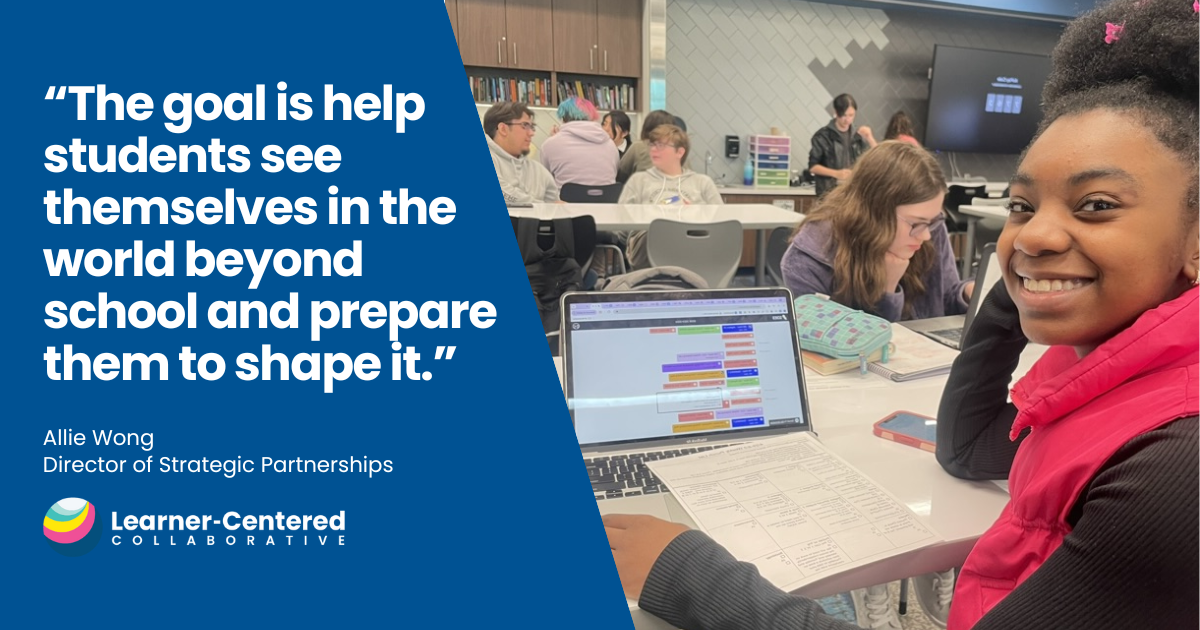A Learner-Centered Research Triad Launches in Southern California
In July of 2023, the University of California, San Diego (UCSD) and the Learner-Centered Collaborative (LCC) announced a groundbreaking strategic partnership that would unite researchers, practitioners from LCC, and regional districts in advancing learner-centered practices. Among the key objectives of this partnership is to share knowledge and resources and disseminate findings to ensure broader impact of the research initiative. In the spirit of sharing and keeping the larger learner-centered community informed, Liz Perry shares insights and reflections from the first research and practice team convening.
The Kick-off Convening
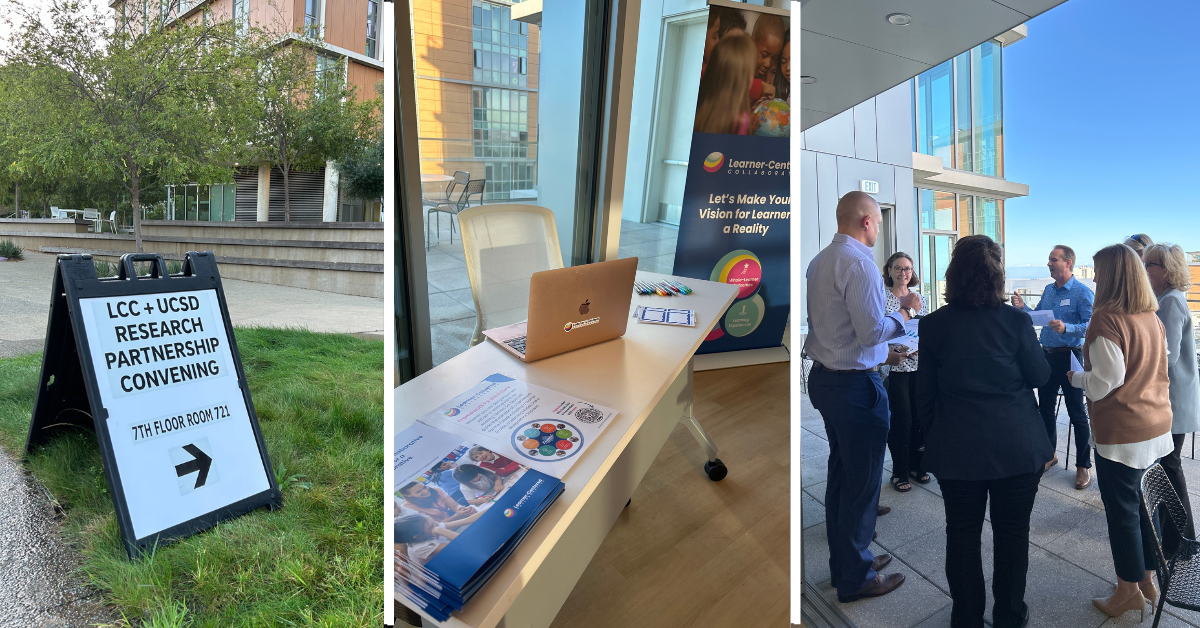
On October 24th, in a full-circle moment my colleague Katie Weisberg and I, both alumni of UCSD and current Directors of Strategic Partnership at LCC, made our way through the beautiful and growing UCSD campus toward the Social Science Public Engagement Building to participate in the first convening of this research partnership.
The collective of district leaders from seven regional districts, researchers from UCSD and San Diego State, LCC colleagues, and other supportive thought-partners was welcomed by Dr. Devin Vodicka and Dr. Katie Martin of LCC and Dr. Alan Daly of UCSD. Together, they set the context for our gathering. The goals for the initial session were to connect those present in the room, anchor the collective in our current context, and to coalesce around a vision for the next evolution of learner-centered education. As we strive to put learners at the center by design, this collective partners researchers and practitioners in answering our most pressing questions and mobilizes knowledge for the benefit of all. Here are a few design principles shaping this program that make it uniquely positioned to explore powerful, relevant questions that will have direct and timely impact on a broad contingent of education practitioners in the field.
In Now Is the Time for Learner-Centered, Whole-Child Education, learner-centered leaders reinforce the promise and urgency of learner-centered education.
Inviting Research and Practice to the Table

I joined LCC in September, formerly serving as Director of Instructional Innovation at San Diego Unified School District (SDUSD). As a district leader, I had the opportunity to engage with various thought-partners and researchers to help advance and assess the impact of SDUSD’s initiatives. Systems, large and small, engaging in innovative change efforts have the potential to benefit greatly from these strategic collaborations.
For example, Dr. Alan Daly shared how UCSD has pulled up alongside educational leaders and practitioners through Research-Practice Partnerships (RPPs). These long-term collaborations are intentionally organized to connect diverse forms of expertise with the goal of producing actionable knowledge through research. Partnering with researchers provides us, the practitioners and thought-partners, with the opportunity to ask and receive support in answering our biggest questions in real time, including:
- How will we know our collective efforts for learner-centered education are working?
- How can we identify the levers of change with the greatest impacts?
- And, how can we share with our communities and beyond what we’re learning so that all learners benefit?
Learn more about the objectives, process, and questions this initiative aims to address in the research partnership concept paper.
Triangles Are The Strongest Shape
Dr. Daly emphasized the power of bringing together the three entities in this unique research partnership – district teams, thought-partners, and researchers. The concept of Tertius Iungens, a Latin phrase meaning “the third who joins”, suggests that the third element in a triad or triangle helps to amplify the strengths of the other two, ultimately leading to a more powerful and effective outcome. Triangles are, after all, the strongest shape and are capable of bearing heavy loads. While Dr. Daly delivered this message using an analogy between Tertius Iungens and three characters in Star Trek, which to my embarrassment I only knew one (apologies Dr. Daly, I’ll study up before we convene again), the message rang true. When we rely on one another’s strengths, we can achieve something greater than the sum of its parts. And, as I reflect on my experience at San Diego Unified and now at LCC, the strongest partnerships are often triangles.
Diads to triads is just one of the many learner-centered leadership superpowers Devin Vodicka and Marlon Styles share in Flex This Superpower- A Learner-Centered Approach to Engaging Stakeholders. Watch the video to hear them all!
Building Bridges
While uniting the triad of researchers, thought-partners, and district teams delivers strength we do not possess alone, this new collective also grows our network of learner-centered leaders. This, in turn, supports the mobilization of knowledge for the benefit of our whole region and beyond. Working in close partnership with researchers from UCSD helps bridge the gap between the knowledge researchers generate and the needs of practitioners closest to learners. As we shift from a school-centered model of mass production with low flexibility for learners to more learner-centered models that allow for personalization and high levels of flexibility, research can help to illuminate the impacts of these efforts and the transformative power of putting learners at the center by design.
Two regional district leaders, Andrée Grey, Superintendent at Encinitas Union School District, and Laura Philyaw, Deputy Assistant Superintendent at Escondido Union School District shared with the group the efforts of their communities to bring to life the districts’ learner-centered visions. Both leaders highlighted their districts’ mission, vision, and values, learner profiles, learning models, and efforts to translate these frameworks into practice. Listening to Superintendent Grey and Deputy Assistant Superintendent Philyaw revealed deep connections in their districts’ learner-centered journeys and the potential to bring districts together, mobilizing learning across the region.
We concluded with a reflection protocol called, “I used to think…Now I think” and a common theme that emerged among participants was:
I “used to think” we were taking on this important but challenging work in isolation, but “now, I think” there are various districts, thought-partners, and researchers right here in the region with shared visions and hopes for a learner-centered future.
Employing the concept of Tertius Iungens, we can amplify our strengths to center learners in Southern California, and by expanding our networks and mobilizing knowledge, our triangles can build bridges that benefit all learners.
Next Steps
In future convenings, the aim is to include even more regional leaders and thought-partners working towards the same vision, expanding our network and, therein, the possibilities this unique partnership presents. If you are interested in updates, getting involved in the work, and/or joining future convenings, please contact collaborate@learnercentered.org.
